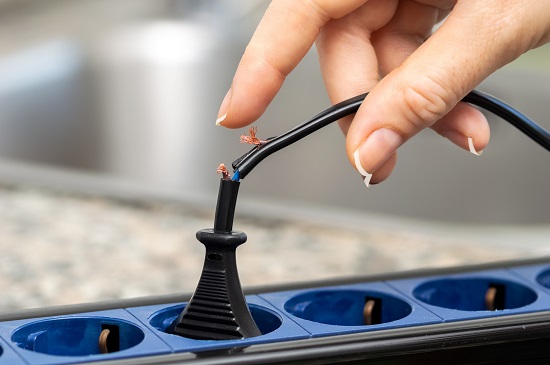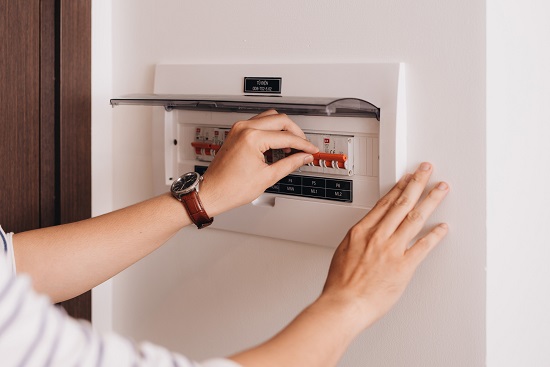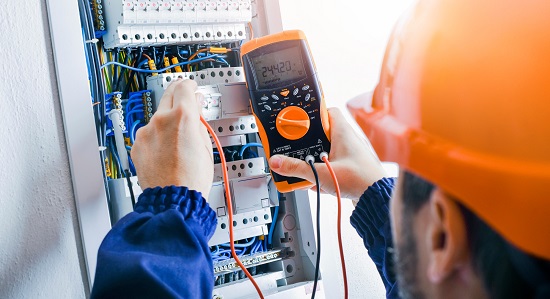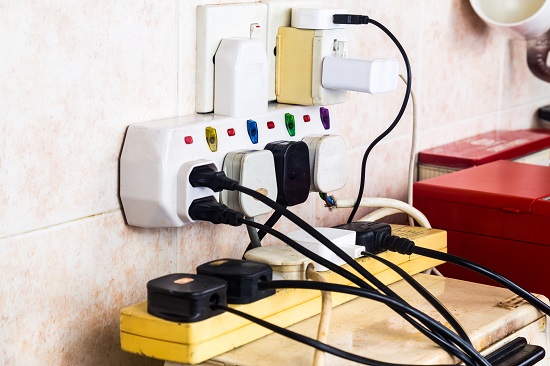The most common types of electrical accidents are shocks, burns, and fires. The consequences of electrical accidents vary in terms of extremities. Minor consequences are superficial burns, with the extreme ones being death and heart failure.
According to CFOI (Census of Fatal Occupational Injuries), 126 people died in the United States from electricity exposure in 2020. Based on this, it’s clear that electrical accidents are things to look out for to prevent avoidable accidents and deaths.
Then, how can you avoid electrical accidents and their repercussions? Here are tips and tricks you can find very useful:
Always Work With An Expert
Electrical works require specialized skills to execute. There’s a high possibility of mistakes, like connecting the wiring wrongly, when a novice does electrical work. The result is increased electrical accidents.
Based on this, working with a qualified electrician Colorado Springs if you’re in Colorado or wherever you’re located is important. They have the electrical skills to meet your needs without errors since they know what they’re doing.
Certify the electrician’s qualifications by asking to see their credentials. Experience also depicts the level of expertise. The more years in the business, the more experience and the more an electrician is qualified to meet your electrical needs.
Always Wear The Right PPE
Personal Protective Equipment (PPE) plays an important role in ensuring safety. They’ll protect you as you work with electricity. There are many PPEs available, each best for given situations. In this case, wear PPEs that protect from electrical accidents like electrocution.
The ideal electrical PPEs include, but aren’t limited to:
Non-Conductive Safety Boots – they’re insulated and prevent the grounding of electrical charges. Your body is conductive with the continual touching of electricity. It’ll likely get static, increasing the chances of getting electrocution.
Fire-Resistant Clothing – these prevent you from catching fire through sparks that might generate as you work with electricity.
Insulated Gloves – they protect electricity from getting into your body through your hands should you touch a live wire or if there’s an incident of short-circuiting.
As you use PPE, ensure they’re of the right size. Otherwise, they might do you more harm than good. And buy high-quality PPEs to offer adequate protection. You want them to have the minimum standards regarding safety.
Repair Damaged Parts Promptly
One of the major causes of electrical accidents is exposed live wires. They’re the number one characteristic of damaged parts concerning electricity.
Electrical wires get damaged due to them wearing out and placing them in the wrong places, like under the carpet, where they’re under constant pressure due to all the traffic. And your pet could be the cause, with them chewing away the wires.
Exposed wires increase the possibility of fires and electrocution. Hence the need to repair damaged parts promptly.
It’d help to place your wiring in a hidden area, away from traffic and access by your pets. Also, regularly inspect your wiring for signs of damage and wear and tear. Doing so helps you catch issues in their initial stages before they progress and cause more havoc.
Follow Manuals For Electrical Appliances
Misuse of electrical appliances contributes to fires and electrocution. Some things that cause these appliances to be a hazard are wrong plugging, placing, and repair techniques. You can avoid all these by reading the manuals that come with electrical appliances.
Be sure to do so before using any appliance, and not when it’s too late. Remember, prevention is better than cure.
Avoid Overloading Sockets
Socket overload is a common practice in homes and offices. It’s characterized by plugging many appliances or outlets into one socket. The result is overloading, which can cause a fire.
Overloading often arises when there are minimal sockets that can sustain the occupants of the space or building. People will use extension cords to connect as many appliances as possible. It can result in exceeding the wattage or overheating of the socket.
It’s best to provide enough sockets in a building. The number of occupants and extent of use should guide the number of sockets. In addition, it’d help to place the sockets as close as possible to where you’ll use them. It prevents the use of extension cords that increase the chances of overloading.
Place Your Appliances In A Ventilated Area
Your home likely has several appliances in different spaces, from the kitchen to the living room. These have several parts that help them meet your needs, like fans and filters. They help your appliance cool as it runs.
Wrongfully placing your electrical appliances can interfere with the running of these parts. Suppose you place your Air Conditioning (AC) unit in a poorly ventilated area. Dirt and debris will accumulate in the filter and lodge your exhaust fans. With no free airflow, the AC will overheat, which can lead to a fire should the overheating persist.
Therefore, place your electrical appliances in well-ventilated areas, like the vent or window.
Conclusion
The discussion above has detailed the best practices to ensure electrical safety. As seen, they’re simple and quite easy to implement. Therefore, be sure to adopt them. Doing so will help you avoid electrical accidents and their repercussions.












